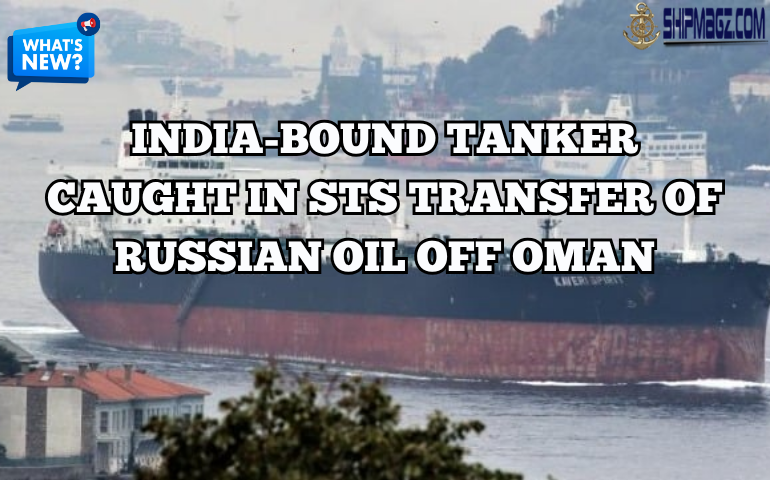India-Bound Tanker Caught in STS Transfer of Russian Oil Off Oman

Background
A detailed investigation conducted by TankerTrackers.com, and reported in the Financial Times, uncovered evidence of transshipment operations involving four Russian-flagged or sanctioned tankers — namely Belgorod, Dignity, Danshui and Primorye all loaded in Murmansk, Russia.
The Transfer Operation
These vessels travelled to an area outside Omani territorial waters in the Gulf of Oman, about 40 nautical miles east of Sohar, switched off their Automatic Identification System (AIS) transponders, and conducted STS transfers with the Sierra-Leone-flagged Samadha. Satellite imagery captured the rendezvous and transfer operations.
Destination & Ownership
The crude eventually arrived at India’s Guru Gobind Singh Refinery in Punjab, a joint venture between Hindustan Petroleum Company and Mittal Energy Limited. The transfer implicates trade corridors bypassing sanctioned-oil safeguards.
Sanctions & Enforcement Implications
The Samadha has been sanctioned by the UK’s Office of Financial Sanctions Implementation (OFSI) and the EU, though not yet by the U.S. The involvement of sanctioned vessels in this trade underscores regulatory and enforcement challenges for maritime authorities and insurers alike.
Broader Geopolitical Context
The U.S. has increased pressure on Indian consumers and Russian crude producers, tightening controls on Arco-grade crude from Russia. The incident also raises questions about the interplay of global economic interests and regulatory actions.










